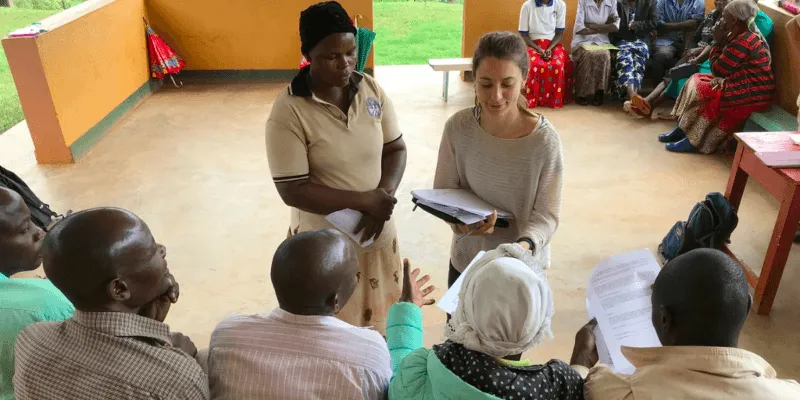Doctor of Nursing Practice students presented their scholarly findings in an internet videoconference on April 15 with a virtual audience of their peers, family members and friends. The 20 students, who will graduate this May, engaged in the projects as one of the requirements for completion of the Doctor of Nursing Practice (DNP) program.
The evidence-based projects, which range from preventing obesity to improving suicide prevention screening to reducing infections among people with opioid abuse disorder, contribute to nursing clinical practice and improve patient care. Presenting the projects gives graduate nursing students an opportunity to share their conclusions with colleagues and other health care professionals while gaining presentation experience.
Kate Judge studied the link between infant malnutrition and breastfeeding education in rural eastern Uganda. She found that providing community health educators with information about how to assist postpartum mothers with breastfeeding improves rates of breastfeeding and could help reduce infant deaths in low-income, rural regions of the world. Judge worked with the Foundation for International Medical Relief of Children (FIMRC) clinic in Bumwalukani, Uganda, to distribute breastfeeding educational videos to 42 health educators in Uganda where, according to demographic surveys, fewer than 43% of infants age 4-5 months are breastfed and infant mortality is high.
The projects provide a forum for demonstrating the students’ abilities to apply the best evidence to promote clinical excellence as emerging leaders in health care delivery.
“Through my DNP project experience, I learned what it means to help individuals and communities make informed decisions about their health,” said Judge, who worked with her academic advisor, Professor Hendrika Maltby, on the project. “I love the role of the nurse practitioner because I believe we are uniquely well equipped to recognize the social determinants of health and balance evidence-based medicine with the art of the human healing process. As a future nurse practitioner, I am dedicated to providing healthcare to vulnerable and underserved populations, and hope to increase access to medical care to those who need it the most.”
Working in Uganda shaped Judge’s perspective on the global COVID-19 pandemic and nurse practitioners’ role in improving health care systems.
“We know that COVID-19 will disproportionately affect those most vulnerable and hit countries with weak health systems the hardest. Yet, I believe we in the U.S. can also learn from countries like Uganda who have faced the reality of responding to epidemics in the context of resource scarcity. Decreasing community transmission has been the key to containing outbreaks such as Ebola, cholera, tuberculosis, and HIV. Nurse practitioners have the opportunity to be advocates in their communities for improved public health responses including widespread testing and aggressive contact tracing,” Judge said.
